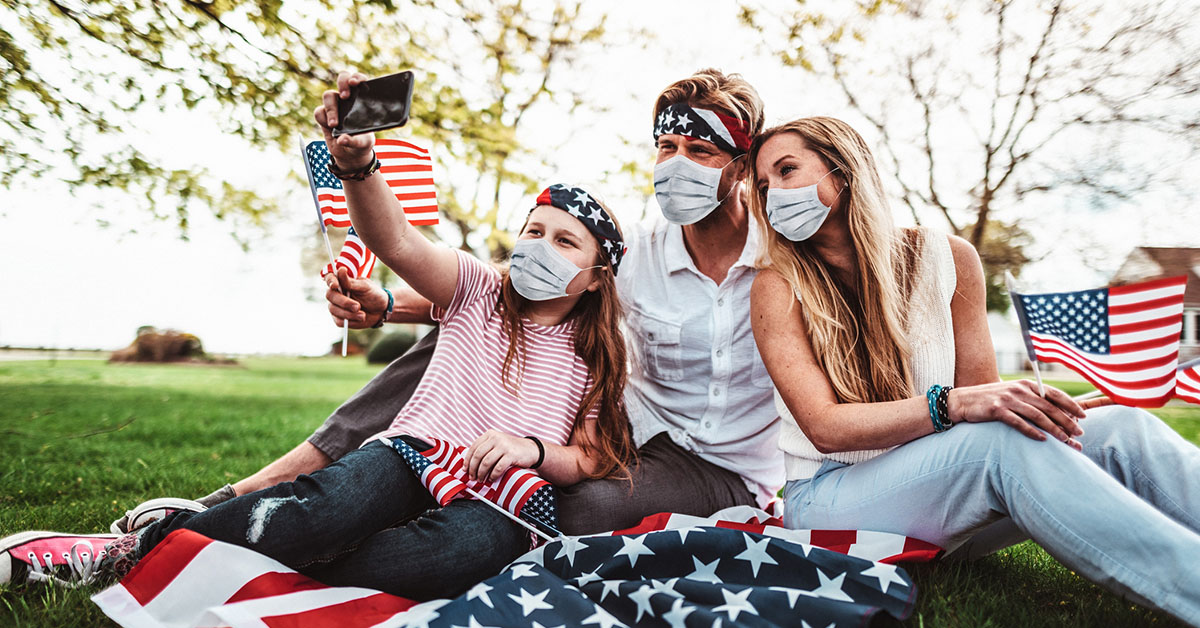
The 4th of July represents the birth of the United States of America and is usually celebrated with a barbecue with family and friends, a day at the shore, or a road trip.
Sometimes, these celebrations can include an unexpected trip to an urgent care center. Common injuries over the 4th of July weekend include motor vehicle accidents, alcohol consumption, dehydration, fireworks, grilling, and extra sun exposure.
Keep in mind the below safety tips to ensure you and your loved ones have a healthy holiday weekend!
If you are among the many Philadelphians who will be traveling this 4th of July to the shore or other destinations, please remember that road safety begins with you. The National Safety Council estimates that roughly 400 people may die on U.S. roads this Independence Day holiday. Wearing seat belts is critical, but one of the most effective safety tactics is defensive driving (or biking) on crowded roads. Defensive driving heightens your ability to recognize potential hazards or accidents, such as dangerous weather conditions or careless actions by other drivers. As a result, the chance of an accident occurring declines significantly, whether through your fault or other drivers. Accidents are tough to prevent entirely, but that’s why you’ll make sure everyone in the car is wearing a seatbelt or correctly positioned in a booster seat. Seat belts are not only mandatory by law in most areas, but their use effectively reduces the severity of injuries from car accidents. If alcohol is a part of your holiday festivities, you should make sure that you have a designated driver.
The weather can be hot and steamy on the 4th of July, making it easy to have a little bit too much to drink of your favorite adult beverage. Drinking alcohol, especially with the combination of the hot summer heat, also puts you at a higher risk for dehydration. If you experience any of the following signs and symptoms of dehydration, you should seek immediate medical attention:
If you drink too much alcohol without moderation during your festivities, you might be at risk of binge drinking. The CDC defines binge drinking as a drinking pattern that brings a person’s blood alcohol concentration (BAC) to 0.08 g/dl or above. Binge drinking typically happens when men consume five or more drinks, or women consume four or more drinks in about 2 hours. Not only is binge drinking linked to a higher risk of various types of injuries, violence, risky sexual behavior, and alcohol poisoning, but it can be hazardous if you take certain medications or have certain chronic health conditions.
If you’re including fireworks as part of your celebration, try to keep these tips in mind:
While keeping food at the appropriate temperature and preventing cross-contamination from raw meats, you should also take steps to avoid burns and other injuries while grilling.
The intense summer sun can burn and damage your skin in as little as 15 minutes. To prevent sunburns, stay in the shade as much as possible, wear a wide-brimmed hat and sunglasses, and frequently apply a high-SPF sunscreen.
Amid all the fun and festivities, it can be easy to forget about the coronavirus. However, with groups of people gathering, it’s critical to make sure you and your loved ones continue practicing COVID-19 etiquette. This includes:
If you do come in contact with a large group of people, either while on the beach or at a barbeque, it’s recommended that you monitor your symptoms and receive a COVID-19 test 7 days after the event.
If you experience a minor illness or injury this 4th of July, vybe is here for you. Our urgent care locations will be open to provide you with quality, compassionate care so that you can get right back to the celebration.
FIND YOUR VYBE